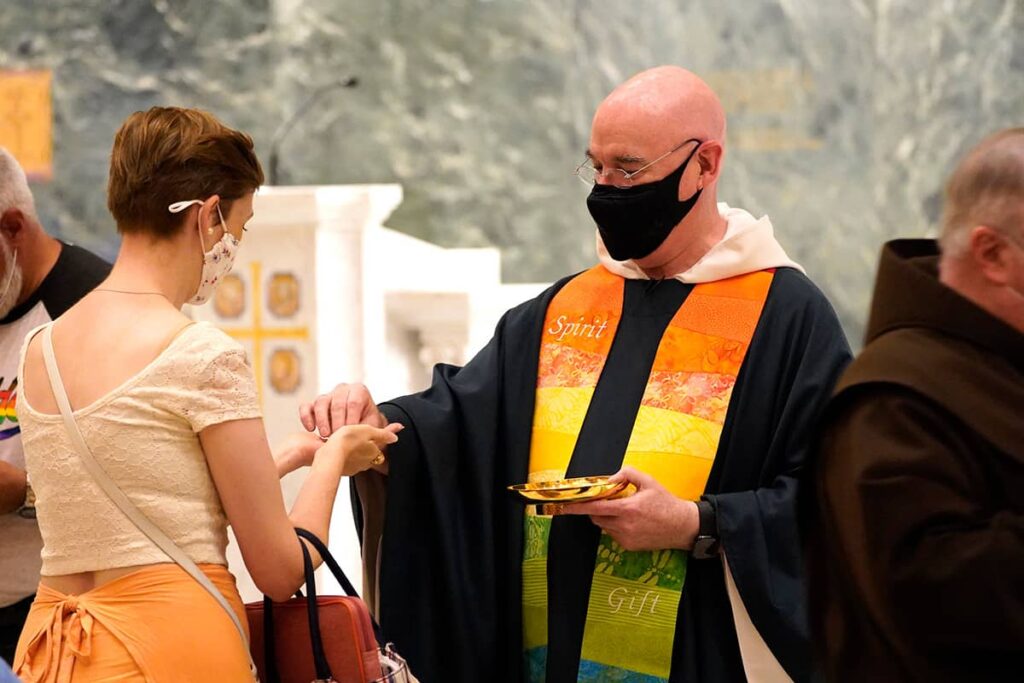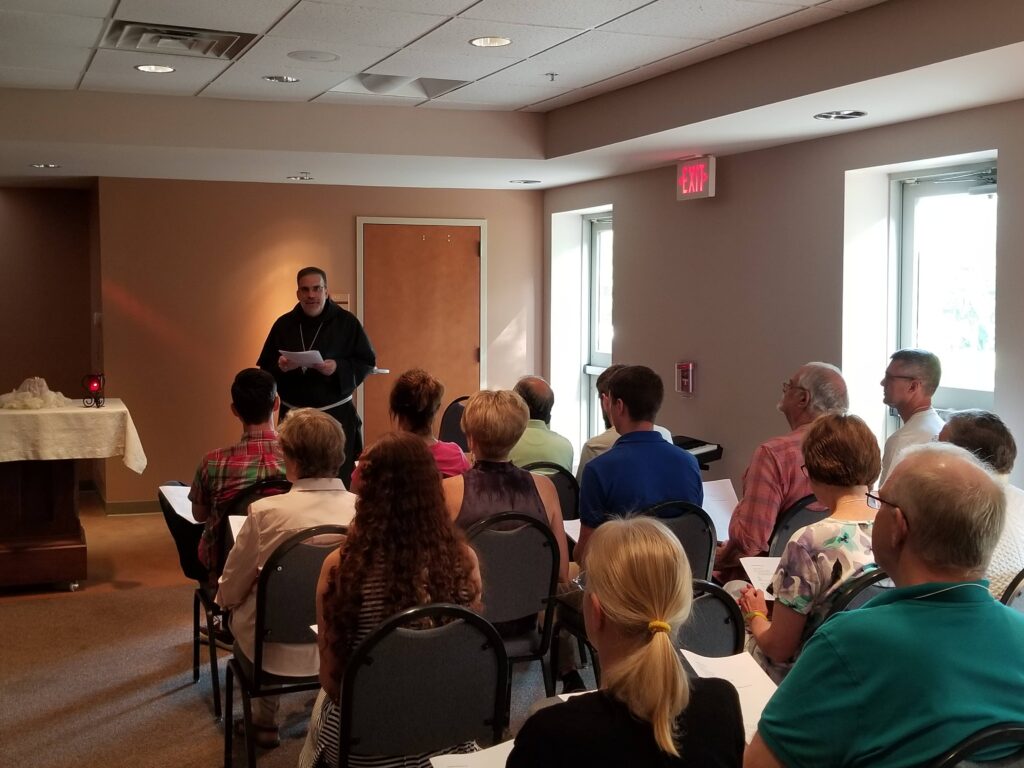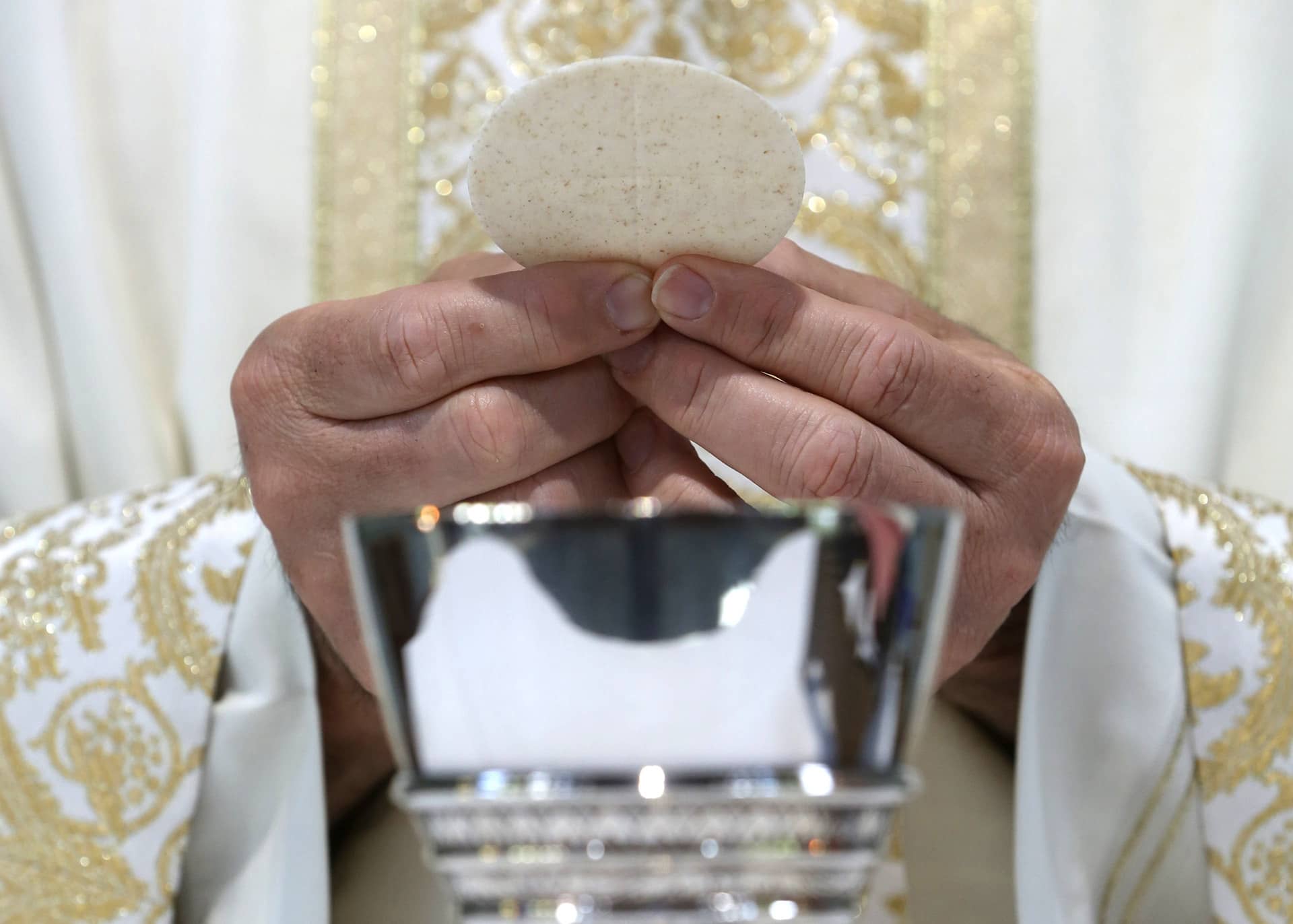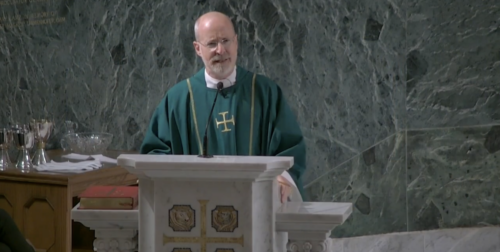A Catholic bishop on welcoming LGBTQ people in the church
Luke’s Gospel, which especially highlights the mercy of Jesus, recounts the story of a sinful woman creating a scene at a dinner party by her lavish display of love towards Jesus because he offers her forgiveness (Lk 7: 36-50). Jesus, often criticized for the company he keeps and with whom he dines, is at the home of Simon the Pharisee.
A woman, who would not have been invited to this meal because of her gender and her reputation, learns of Jesus’ presence there and falls at his feet which she washes with her tears, dries with her hair and then anoints. Simon the Pharisee’s unspoken thoughts are recorded by Luke and responded to aloud by Jesus. In his mind, Simon questions Jesus’ authenticity as a prophet because he is not bothered when he is touched by a sinner. Jesus replies with a question which recasts the scene in terms of dollars and cents, a language the Pharisees clearly understand. He asks who will love more, one who is forgiven a small debt or one who is forgiven a larger one?
Because the Pharisee responds correctly to the obvious question, Jesus invites Simon to reconsider what he has witnessed as a loving response to the generous mercy the woman has received. Simon and his companions are further scandalized when Jesus explicitly forgives the woman and praises her faith.

Pre-Pride Festive MassJune 26, 2021. The liturgy, hosted by the parish’s LGBT Ministry, is traditionally celebrated on the eve of the city’s Pride march for the LGBTQ+ community. (CNS photo/Gregory A. Shemitz)
This scene illustrates how it is possible for two participants in the same event to interpret it in radically different ways. The Pharisee host of the dinner, along with his other guests, cannot see the love the woman is manifesting because they can only see her sins. She is reduced in their minds to her worst behavior. Jesus, the recipient of her generous love, is so focused on her love that the sin is cast out. He sees the person and her deep faith; he no longer sees her sins.
This passage comes to mind nearly every time I hear or read something from well-intentioned Catholics who seem unable to consider the human needs and basic goodness of LGBT persons because they quickly leap to assumptions about their sinful behavior.
It also comes to mind because I have so many readily available stories of LGBT persons of great faith who are indeed in love with God and experience the welcoming embrace of Jesus who has entered their lives. It is not out of line to describe their manifestations of love as lavish and they are so often performed as service to the Church and the people of God, a “washing of feet” to be sure. My life and my own faith have been enriched and strengthened by such people who are too often labeled as sinful, or “intrinsically disordered”.
To be sure, the attitude of the Pharisee lives on, and is not only expressed by the well-intentioned who want to follow the teachings of Christ and the Church to the letter. The interior judgment and exterior behaviors informed by that judgment have done great harm to the spiritual lives of many in the LGBT community.
Threatened with the certainty of their damnation, denied their status as children of God, their human dignity and inestimable value degraded, their behavior presumed and judged; too many LGBT persons in our community of faith have struggled with their identity and questioned the possibility of God’s unconditional love. Perhaps they have not had the kind of encounter with Jesus which prompted the woman in the Gospel story to pour out her love at the feet of Jesus. Perhaps that kind of encounter has become out of reach because of the contempt they have felt from members and leaders of the Body of Christ.

Although the Catechism of the Catholic Church distinguishes between homosexual orientation and sexual activity; the insistence on the fundamental human dignity of LGBT persons as made in the image and likeness of God often elicits quick attempts to qualify that dignity or even dismiss it.
Some European and other bishops who attempt to apply Gospel values to pastoral ministry with LGBT members of the church have found much to affirm in committed same-sex relationships, but they endured the ire of bishops in other places and other enforcers of sexual morality who cannot see the love because they are so focused on sin.
Among those who acknowledge the mercy and compassion of Jesus, many are quick to point out that Jesus calls the sinful to conversion. Fair enough, if we can all remember that the same Jesus instructs us to take the beam out of our own eye before trying to remove the speck from another’s.
The call to conversion is universal, is all inclusive, and genuine saints recognize their need to respond to that call. The call to holiness is also universal, all inclusive. All attempts at creating a pure church, free of all taint of sin have failed and will always fail—the Body of Christ has gathered sinful humanity on the path to redemption. Jesus came to call sinners, as we so frequently hear at mass.
When we gather for the Eucharistic banquet, our sharing in Jesus’ lavish sacrifice for sinners, let’s not be like Simon the Pharisee and judge the others at the table nor reduce them to what we think is their worst behavior. Let us rejoice in the company of sisters and brothers made in the image and likeness of God, affected by sin but longing for redemption. Let us see and celebrate the love that gathers us and the love that allows us to respond to God’s infinite mercy.



